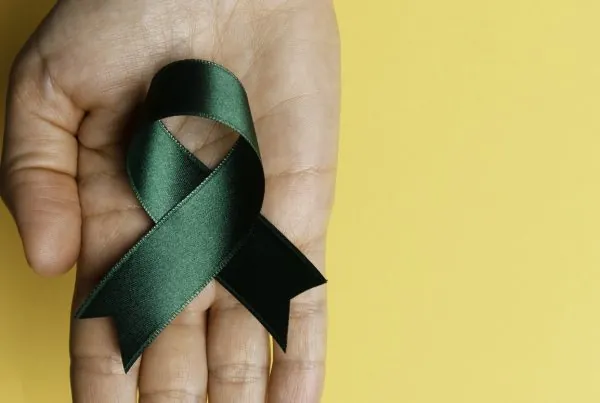Traumatic experiences can alter a person’s psyche dramatically, weighing on them both consciously and subconsciously, and changing their decision making, their thought processes, and their behavior. These changes can alter personalities and continue to affect a person even long after they’ve “made peace” with the past. And like adults, teens can also experience trauma or a trauma disorder too. But what are the signs of trauma in teens? How are these signs recognized? And how does one cope?
In teens especially, trauma can lead to emotional and psychological maladjustment, presenting difficulties in achieving independence in adulthood, communicating with others, retaining and understanding information, and engaging with people socially.
To understand why and how trauma can affect teens, we need to understand the effect trauma has on the brain, and why treatment can be difficult.
What is Teen Trauma?
Traumatic experiences are subjective, meaning an event that traumatizes one person might not necessarily traumatize the other, even if they were both present that day.
But nearly all traumatic experiences are characterized by their shock and horror – usually, events involving mass death, abuse, violence, cruelty, long-term neglect, or forces of nature. Trauma may be caused by an acute event or a period of horror.
When trauma occurs, the mind is affected in a way that isn’t typical of stressful situations. We are equipped to deal with stress, and we learn through both negative and positive reinforcement. But there’s a difference between “one of life’s lessons” and an event so impactful that it leaves an unwanted mark on our way of thinking for years to come. The latter is a traumatic event. Trauma is characterized by intrusive thoughts and emotions, changes in mood and cognition, jumbled or lost memories, and more.
Teens experience trauma similarly to adults, with a few key differences. The biggest is a greater tendency towards impulsive, risk-taking, self-destructive, and violent behaviors. Teens are more likely than adults to turn towards self-harm, dangerous sexual behavior, and drug use after a traumatic event.
Now, let’s look at some of the signs of trauma in teens and their effects.
Recognizing Signs of Trauma in Teens
Psychologically, trauma is understood as an open and unhealing wound in the mind. The mind may respond in a few different ways, which brings us to the telltale signs of post-traumatic stress. These include:
- Hyperarousal/hypervigilance, such as overreacting emotionally and physically to certain stimuli, like unexpected touch or a loud noise.
- Depersonalization/dissociation, such as remembering trauma as something that happened to someone else, or completely forgetting/burying the event.
- Extreme avoidance of potential triggers.
- Development of phobias, or extreme fears related to the event.
- Unwanted or intrusive thoughts, including memories or flashbacks, panic attacks, and frightening thoughts.
- Changes in mood and cognition, including memory problems, having a harder time retaining information, not enjoying things as much as before, being more depressed, feeling down more often for no discernable reason, and a more negative worldview.
- Irritability and aggressive thoughts/behavior, especially in teens.
1. Hyperarousal
Hyperarousal is one of the primary symptoms of post-traumatic stress disorder. Hyperarousal can be recognized through constant overarching anxiety, always being “on edge”, being easily startled, bouts of insomnia, and an elevated fight-or-flight response.
2. Dissociation
Dissociation and its similar symptoms usually involve some sort of distortion in the perception of a traumatic event to avoid the pain associated with it, whether by forgetting it completely, only remembering vague memories, or associating it with someone else.
A teen who is dissociating from their trauma is still heavily affected by it, and may experience hyperarousal and hypervigilance, as well as strong anxiety symptoms.
3. Avoidance
Avoidance is a normal response to something awful, but avoidance symptoms in the context of trauma may go to extreme lengths, such as never stepping foot inside an elevator again, avoiding cars for years, or developing maladaptive coping mechanisms to avoid and forget, including binge drinking and other forms of drug use.
4. Phobias and Panic
Trauma can lead to the development of phobias and frequent unexplained panic attacks. These may include a phobia of crowds, a phobia of certain animals, or even a phobia of men.
In contrast to other fear or anxiety-based symptoms, phobias represent an overwhelming, constantly present fear, to the point the thought of the danger can cause panic even when the danger itself isn’t present.
5. Intrusive Thoughts
Unwanted and intrusive thoughts can range from flashbacks to violent or unwanted fantasies, morbid thoughts, and frequent unwanted thoughts or daydreaming about violence, violent circumstances, and so on. These thoughts are oppressive and difficult to overcome. They can fuel maladaptive coping mechanisms, such as drinking, as a way to block them out.
6. Mood and Cognition
Signs of trauma can be recognized in a teen’s mood and way of thinking after a traumatic event. Trauma can leave a person feeling less enthusiastic about things they used to enjoy, even to the point of anhedonia, or joylessness.
It can also impact a person’s cognitive and creative abilities, slowing them down, affecting memory and critical thinking, and making them less sure of themselves.
7. Aggression, Risk-Taking, and Self-Harm
In teens, trauma will more often accentuate impulsive feelings and feelings of self-harm or shame, and resulting behavioral changes, such as more risk-taking, greater promiscuity, higher likelihood of frequent substance use, and self-destructive or self-harming behavior.
Coping With Teen Trauma
Stress disorders, or post-traumatic stress, as well as other anxiety disorders, may develop because of a traumatic experience. Teens can still function relatively well after trauma but may develop greater signs of mental instability the longer their trauma goes unaddressed.
This is especially true if they begin to seek maladaptive ways to cope with their post-traumatic stress, such as addictive substance use or self-harm.
Healthy coping mechanisms are one of the most important aspects of a good treatment plan for a trauma disorder, including creative endeavors, support groups, family or friend group therapy sessions, sports, and self-care. These coping skills help teens reduce stress levels, manage their stress after traumatic triggers, and help avoid or ignore intrusive thoughts.
Mental Health Treatment for Trauma
Mental health treatment remains the crux of any teen trauma treatment plan. Professional one-on-one or group therapy is the first line of treatment for trauma disorders, helping teens identify and overcome negative and unwanted thoughts associated with their trauma. Trauma-specific therapeutic interventions include:
- Eye movement desensitization and reprocessing
- Cognitive processing therapy
- Prolonged exposure therapy
- Somatic therapy
- And more.
Working with a therapist you can trust is important. Trauma disorders are disabling and difficult to overcome. The road ahead may be quite long. It’s important to establish a strong bond with your therapist of choice.
Trauma Disorder Treatment at Visions Treatment Centers
Is your teen struggling with trauma? Reach out to Visions Treatment Centers today. We can help.








